MCQ ON PHYLUM MOLLUSCA class 11 for NEET | MCQ ON NEET Biology class 11th 2022 | MCQ Questions for class 11 Biology chapter – 4 PHYLUM MOLLUSCA with Answer | Check the below NCERT MCQ question for class 11 Biology chapter 4 based on PHYLUM MOLLUSCA with Answers.
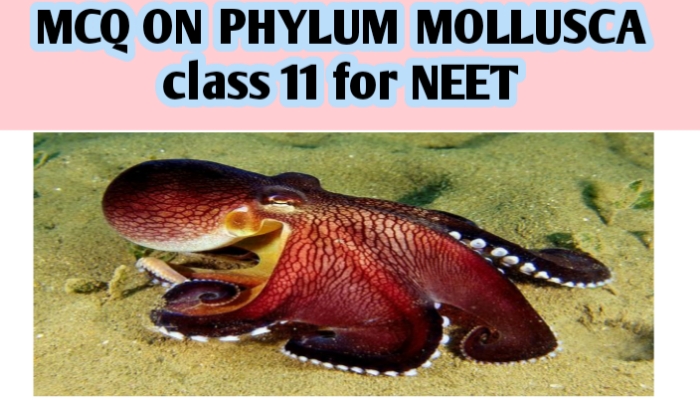
MCQ ON PHYLUM MOLLUSCA class 11 for NEET
MCQ Questions for class 11 Biology with Answers were prepared based on the latest pattern. We have provided class 11 Biology MCQs questions on PHYLUM MOLLUSCA with Answers to help students understand the concept very well.
MCQ on Phylum MOLLUSCA is useful for NEET / CSIR / UGC / CBSE / ICSE / AIIMS / EXAM / AFMC EXAM / STATE LEVEL MEDICAL EXAM 2022- 23.
Phylum – Mollusca is the second largest animal kingdom . Molluscs are terrestrial or aquatic having an organ – system level of organisation. They are bilaterally symmetrical , triploblastic and coelomate animals .Body is covered by a calcerous shell and is unsegmented with a distinct head , muscular foot and visceral humps.
MCQ ON PHYLUM MOLLUSCA class 11 for NEET
1. The second largest phylum of animalia is
(a) arthropoda
(b) Cnidaria
(c) annelida
(d) mollusca
Ans (d) mollusca
2. Molluscs are terrestrial or aquatic ( marine or fresh water ) having an
(a) cell level organisation
(b) tissue level organisation
(c) organ level organisation
(d) organ system level of organisations
Ans. (d) organ – system level of organisations
3. The important features of mollusca are
(a) bilaterally symmetrical
(b) triploblastic
(c) coelomate animals
(d) all the above
Ans. (d) all the above
4. The body of mollusca is covered by a
(a) chitinous exoskeleton
(b) calcareous shell
(c) cellulose
(d) all the above
Ans.(b) calcareous shell
5. The body of arthropods is covered by
(a) cellulose
(b) sucrose
(c) chitinous exoskeleton
(d) nutrition
Ans.(c) chitinous exoskeleton
6. The body of mollusca consist of?
(a) head
(b) muscular foot
(c) visceral hump
(d) all the above
Ans.(d) all the above
7. The space between the hump and the mantle is called the
(a) mantle cavity
(b) mantle tube
(c) mantle feather
(d) all the above
Ans.(a) mantle cavity
8. Respiratory organs of mollusca
(a) gills
(b) book gills
(c) book lungs or tracheal system
(d) all the above
Ans.(d) gills
9. The mouth of mollusca contains a file like rasping organ for feeding , called
(a) medula
(b) radula
(c) nadula
(d) meriradula
Ans. (b) radula
10. Life history of mollusca with a larva named is
(a) glochidium or veliger
(b) radula
(c) caterpillar
(d) metamorphosis
Ans. (a) glochidium or veliger
ALSO READ:-
● YOU CAN WATCH BIOLOGY SIR Youtube channel
11. The connecting link between annelids and mollusks is
(a) pheretima
(b) neopilina
(c) archeopteryx
(d) euglena
Ans.(b) neopilina
12. The devil fish is
(a) octopus
(b) loligo
(c) laccifer
(d) anopheles
Ans.(a) octopus
13. The pearl oyster is
(a) pinctada
(b) bombyx
(c) laccifer
(d) aedes
Ans.(a) pinctada
14. The cattle fish is
(a) sepia
(b) apis
(c) bombyx
(d) locusta
Ans.(a) sepia
15. The mouth of mollusca surrounded by 8 arms webbed at the base is ?
(a) limulus
(b) locusta
(c) octopus
(d) laccifer
Ans. (c) octopus
16. A rasping organ the radula in mollusca is found in the ?
(a) stomach
(b) shell
(c) buccal cavity
(d) head
Ans.(c) buccal cavity
17. Blood of mollusca contains copper containing blue respiratory pigment called
(a) haemolymph
(b) haemocyanin
(c) haemoglobin
(d) none of the above
Ans.(b) haemocyanin
18. The excretory organ of mollusca is
(a) kidneys
(b) nephridia
(c) flames cell
(d) plasmodium
And.(a) kidneys
19. Respiration usually takes place by gills called the ctenidia located in
(a) mouths
(b) mantle cavity
(c) stomach
(d) tubifex
Ans. (b) mental cavity
20. Pearl is produced in the bivalve belonging to the genus is
(a) pecten
(b) mytilus
(c) pinctada
(d) ostraea
Ans.(c) pinctada

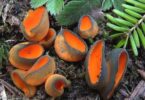
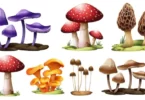
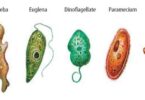
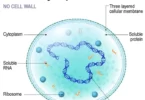
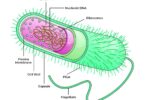
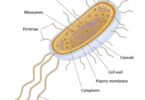
Leave a Comment